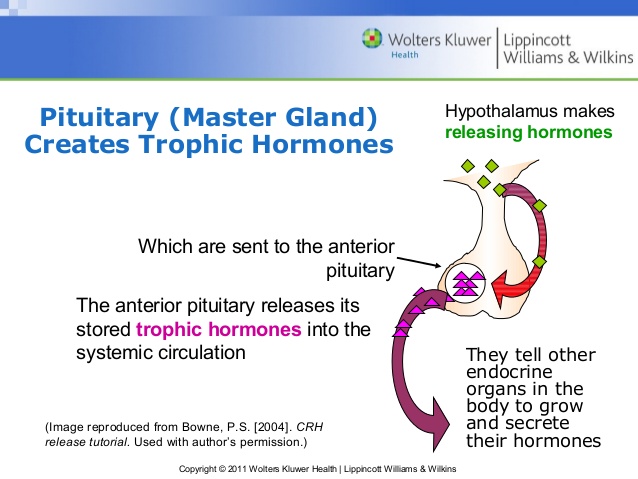How do the pituitary and hypothalamus interact to regulate thyroxine levels?
1 Answer
Thyroid hormone thyroxine (T3, T4, etc) is secreted in response to a trophic hormone released by anterior pituitary. It is named thyrotropin or thyroid stimulating hormone (=TSH).
Anterior pituitary in turn acts under the influence of thyrotropin releasing hormone (=TRH): a neurohormone released by hypothalamus in blood of hypothalamic hypophyseal portal system.
This is summarised in the following diagram:

So when there is secretion of TRH, there is subsequent release of TSH and Thyroxine level in blood will rise.
Higher level of thyroxine, in turn will send negative feedback to both anterior pituitary and hypothalamus. The negative feedback will ensure a decreased production of TRH and TSH, which means level of thyroxine will not increase beyond a normal threshold in normal healthy individuals.
All these hormones are released in highly controlled manner to maintain a steady homoeostasis.
